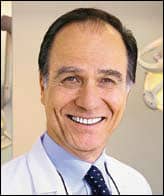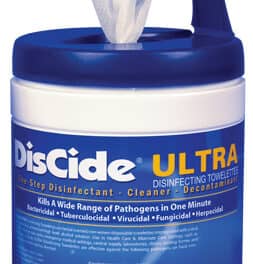by Orhan C. Tuncay, DMD
When borrowing is easy but paying back is difficult, how is the new graduate to start a career?
 |
The new graduate has to understand his or her working life span. It is safe to assume an orthodontist’s working life is about 40 years. The initial and mature years of this 40-year working life span will yield different sums of income. Is it good business to squander the initial years by working odd jobs as an associate?
Perhaps, in the beginning, squandering several years until something good comes along does not sound bad. As a recent graduate, you may never have had much money anyway. Unfortunately, because your working life is finite, you have to look at these squandered years as a reduction of your 40-year working life. In other words, imagine how big the lost income would be if you were to work for 35 years as opposed to 40—and remember that at the tail end, your income potential is significantly higher. Instead of missing out on income in your early years, imagine the dollar amount your are losing is from the last 5 years of your career.
Every lost year will reduce your tail-end estate. Beyond a certain age, it is not a good feeling to realize that retirement—let alone an early one—is not possible. Graduates should not waste their prime years working in non-asset-producing jobs. Instead, they should build their own practices. This is no different from building a retirement fund: The sooner you start, the bigger the yield. Actually, it is good practice to save right away, even if it is with borrowed money.
Here Today, Gone to Borrow
 |
| Orhan C. Tuncay, DMD |
A new practice requires financing. The source of borrowed money is more important than the amount borrowed. Also, the longer the terms, the more that money will cost. For example, the typical homeowner will end up paying three times the purchase price of his house if he has a standard-issue, 30-year fixed-rate mortgage. That is why a 15-year mortgage is better. Or paying every 2 weeks is better than paying once a month. Borrowers should look at the ultimate amount they will end up paying to pay off the loan. This is what the lenders look at; but it is too easy and tempting to look at the monthly payments instead.
The dollar amount of monthly payments could be the irresistible lure; it is fine as long as there is no prepayment penalty. For the most part, money borrowed easily from a financing outfit, just over the phone, has the highest interest rate and prepayment penalty. Easy money is very costly and difficult to pay back.
Banks are where the money is kept. They make their living by lending. They do not speculate. They look for collateral. This is especially true for the large, national banks. Sadly, young orthodontists’ only asset is their educational debts. It is neither a good idea nor possible to ask the big financial institutions for money. The smaller local banks are best. Smaller banks are equally careful, but also more sensible; they’ve survived the recent economic downturn and turmoil unscathed. They are willing to lend if they know the person; and certainly know an orthodontist is capable of paying back.
If it will not cause much embarrassment, family is the best source of money. Young orthodontists should not hesitate to ask their families and relatives for money. If the lender could collect an interest rate, say, only 1% more than what they would make on the stock market, they would be very happy. Furthermore, the borrower’s financial declaration form will not read all that badly.
No matter what the source of the money is, the payback terms must be within the borrower’s comfort zone. It will determine if it is best to buy a practice, build a practice, or work as an associate forever.
Buying Versus Building
Buying a practice is similar to buying a home. You are buying someone else’s taste, then are spending more money by painting, changing the carpet, redoing the facilities, and the like. If the practice is transitioned quickly, business can go down as much as 30%. But if it is done over a longer period, then the new owner will have lost significant income from his or her later years. It is crucial, therefore, that the buyer pay his or her advisers (lawyer, accountant, comptroller) their weight in gold to make the best deal. Buying a practice can be a good deal only if it is a “deal.” It also says a lot about the solidity and future of the business if the seller is willing to finance. In this scenario, the cost of borrowed money will always be good. Nonetheless, be it the bank or some other financier, it pays to negotiate the terms of the loan. If you don’t ask, you don’t get.
If, on the other hand, the graduating orthodontist can borrow money at a reasonable cost, building a new practice is the best business decision. Everything this graduate puts in becomes an asset. Imagine two houses, each valued at $300,000. One was built by the owners, and they did much of the work themselves. The labor they’ve put in brought the cost of construction down to $200,000. Before moving in, the owner of the other house had to repaint the rooms, redo the landscaping, and remodel the bathrooms and kitchen. They could not live with the taste of the previous owner, and felt the need to spend another $75,000. Ten years later, both houses go onto the market and sell at $800,000. Who made more money?
Building a practice makes better fiscal sense than buying one. The exception is if the bought practice was truly a “deal” and the money spent to refurbish it was worth the final product. The only difficult part of building a practice is that the proud new owner will not have enough cash flow to pay the bills. Clearly, the new owner must work elsewhere as an associate to pay the bills during the initial years. Working as an associate without building an estate is not good business.
Certainly, one could opt for working as an associate for a lifetime. This is a personal choice, and it has many good qualities about it. It is a life without worrying about hiring and firing, marketing, taking time off, filing corporate taxes, and the like. If your daily pay is $800 and you work for 200 days in a year, you will take home $160,000. It is not a bad income for a starting orthodontist. Unfortunately, you will have no estate built, no growth opportunities to have taken advantage of, or any tax breaks that go with owning a business. Most importantly, however, as “age” sets in, the body is less able to perform the manual tasks. An associate who does not see well, gets tired easily, and has shaking hands is not much use to the practice.
|
To read more articles by and about Tuncay, search our . |
A marketable estate is what you need to build. In the early years of a practice, patients come to the orthodontist. Later, as the practice gets bigger and more established, they start coming to the practice. Buying or selling before the practice reaches that stage is not a good business decision.
Money means different things to different people. Its cost varies from one person to another, as it does from one financing outfit to another, as it does from buying to building.
Orhan C. Tuncay, DMD, is professor and chairman of the Department of Orthodontics at Temple University. He is also in private practice in Philadelphia and Bryn Mawr, Pa. He can be reached at









